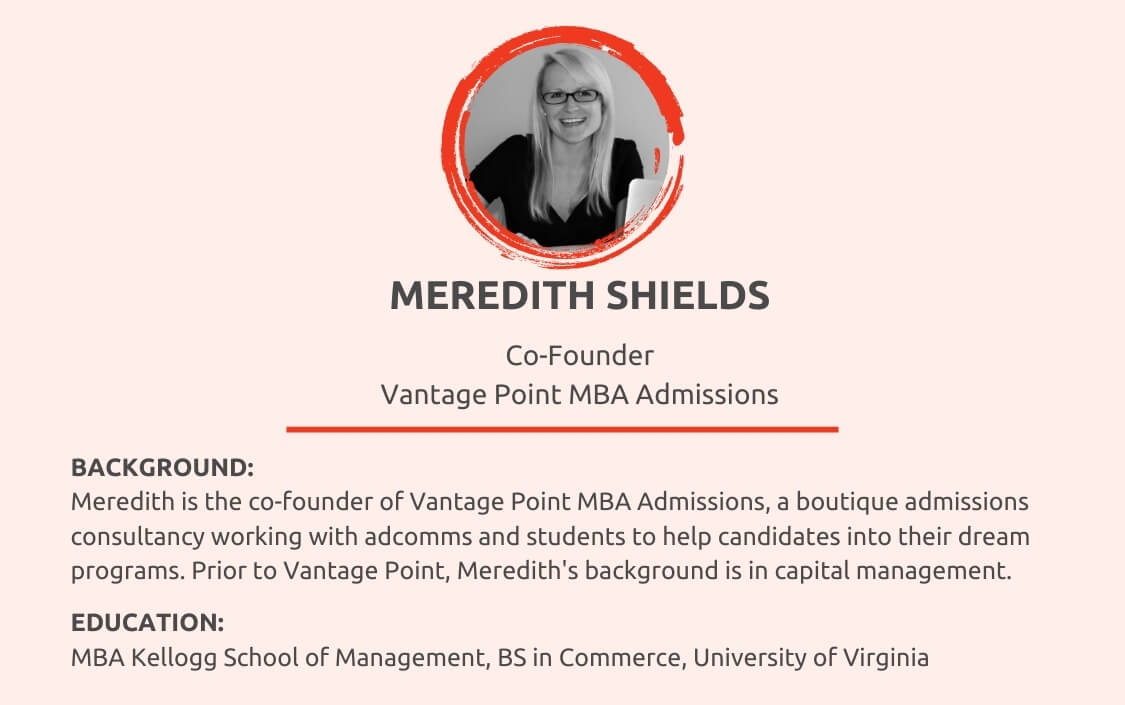It’s crucial to think over what questions you will ask in your MBA interview.
Firstly, your questions will show how interested you are in the program, and how much research you’ve done. Secondly, they demonstrate how well you listened to the interviewer— and attentive listening is key to succeeding in a team environment like business school. Thirdly, the questions you ask are an important tool for engaging your interviewer and winning them over.
When preparing, it’s helpful to first rule out what questions you shouldn’t ask. Below is a list of common Q&A mistakes I’ve noticed as an alumni interviewer for Kellogg, and what you should say instead.

1. “I already know everything.”
Well, that’s no fun! As a Kellogg alum, I look forward to answering questions about the school. I love talking about how awesome Kellogg is. If your interviewer gets to spend the last five minutes reminiscing about business school, the conversation will end on a high— and they’ll associate you with that high note.
Feelings aside, “no questions” essentially equals “no intellectual curiosity” to most interviewers. We just spoke for 20-30 minutes; if you don’t have any questions, that’s a red flag.
2.“I know so many alums that they’ve already answered my questions."
This suggests you don’t care about that person’s perspective, which is not a sentiment you want to leave with the people whose opinion counts.
Another approach would be to leverage something you’ve already heard and ask your interviewer for their opinion. You could say that you’ve already heard that the school plans to go in X direction – so can your interviewer talk about that trend? Or that the alumni network in the Bay Area is really strong – can your interviewer talk about his or her experiences with it? It’s great to show how much research you’ve done and how many people from the school you’ve engaged with – leverage that with your interviewer as much as possible!
3. “What did you dislike about the program?”
You may think that this is a great demonstration of intellectual curiosity and critical analysis. But remember – you want your interview to end on a high note, leaving your interviewer inspired and excited for your matriculation to the school!
Instead, focus on finding out interesting or subjective information about the program. For example, my favorite question is what recruiter feedback has been on the course. Big recruiting firms tend to back-channel info to admissions about the perceived quality of candidates, and that’s super interesting for applicants. Inherent in a neutral question like this will often be some pros and some areas of development for the school. But allowing them to talk about both is key!
4. “Where else did you apply?”
Though it’s good to engage your interviewer on a personal level, this question can send the wrong signal. To many people, a question like this may be subtly asking “are there better options out there?” or “was this school your first choice?”. These are great questions for your alumni friends and family, but again, could put a damper on your interview.
Focus on the positive – how awesome the program is and how much you want to go there. A question like “What stands out as the most impactful experience you had in b-school?” would fit the bill. If your interviewer gets the sense that you’re not interested, all of your awesome answers from the previous 30 minutes are out the window.
5. “Is an MBA worth it?”
If you are asking this in the interview, you are demonstrating a complete lack of having prepared for this process. This question should have been vetted well in advance of being invited to interview.
It’s better to ask questions about how the MBA has helped your interviewer at this stage – this is fun for them to discuss! You can also ask for the top thing they feel like they got out of their MBA.
6. “What percent male/female was last year’s class?”
Any question like this is a no-no, because the data is available in less than three clicks on Google. Never ask a question that is directly answered in the school’s publications – website or otherwise. You can pull down the recruiting report as well as the class profiles and course offerings yourself- if you haven’t done this, they will wonder if you really put thought into your research. Avoid asking hard facts because they are probably already out there somewhere!
Read Next:


